Ethnocentrism: evaluation of other cultures according to preconceptions originating in the standards and customs of one’s own culture.
Google Dictionary
Evaluating the world through the lens of our own culture and experience. We all do it. The important thing is whether or not we realize we are doing it because, if/when we do, we can stop and question ourselves: Am I making moral judgments about behaviors and actions that are morally neutral? How is my own sense of beauty or duty or tradition or appropriate dress or desirable flavors/diet or my definition of freedom/honor affecting my perceptions? Is my response to someone or their actions based solely on how different they are from me and my choices?
When we were first married, I used to tease my husband a lot about being ethnocentric. He was from California, and he compared everything in my Midwest town to his experience growing up in Los Angeles. My city closed down at 6 p.m. LA stayed open all night. My downtown had a feed store. The news started at 10 p.m. with the weather forecast so the farmers could get to bed early and be prepared to rise at the crack of dawn. The main street was named “O,” you never hopped on the freeway unless you were headed out of town, and it never took more than 10 minutes to get anywhere. When he got his first apartment, the landlady told him he could not have his girlfriend spend the night. And, the coup de grace, we called the sandy shore of the lake “the beach.”
Better, worse or just different?
One Year at World Relief Spokane
My one-year anniversary at World Relief snuck up on me. Maybe that’s because it has been an intense year in so many ways. Part of the intensity is simply switching jobs at 62, previously having been at the same non-profit for 15 years. Part of it is learning a whole new organization – new culture, new rules, new team, new challenges. Refugee resettlement is a complex arena. But, I think the biggest reason for the intensity is that I have been re-training my brain.
One of the reasons I took this job in the first place was because of a vision I had. (If you know me, you’ll be struck by how out of character that statement is, but it’s true.) I had seen myself as a tin soldier, marching along in line, trying to stay in step and keep my uniform clean and sharp, when suddenly the sky opened up and multi-colored confetti came pouring down. It seemed like an invitation to explore something new – a workplace where I would meet people from all over the world, hear multiple languages spoken and experience cultures beyond my experience – an invitation to dance amidst the confetti.
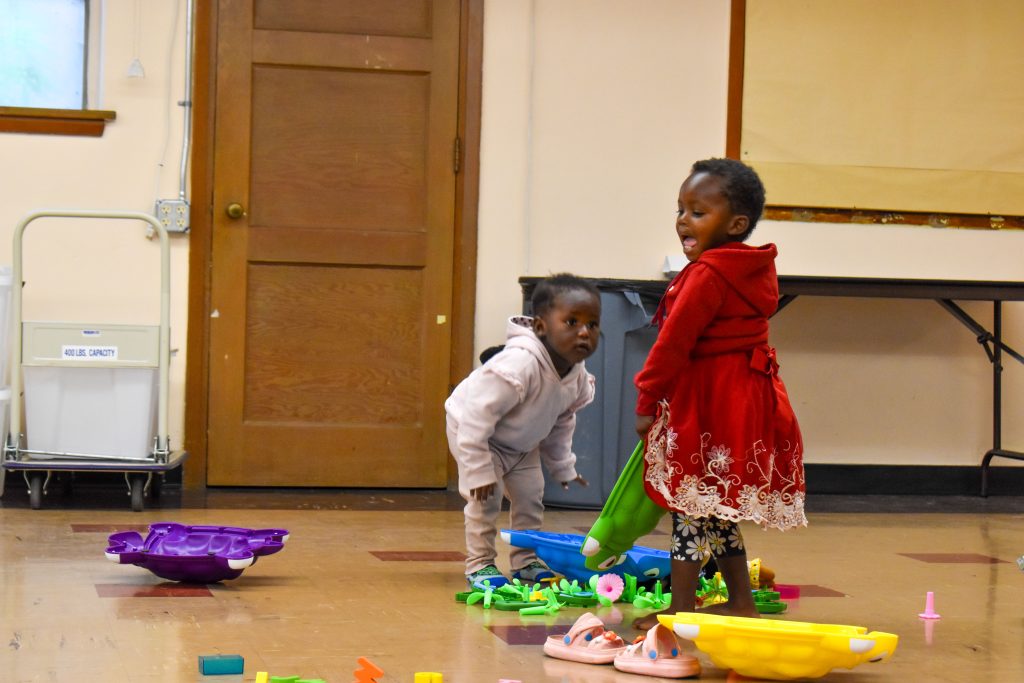
It has been all of those things, but it has also been terrifically hard. Changing the way you think in your sixties takes work…and time. I’m only one year in, but I thought it might be helpful to highlight a few words on which I’ve been ruminating.
HOSPITALITY
Hospitality doesn’t really have much to do with imitating Martha Stewart or, on the opposite extreme, Marie Kondo. It’s not about vintage dishware or perfect aesthetics or Pinterest-worthy home décor. It’s not about what you hang on your wall or put on your table. Your house doesn’t have to be perfectly clean or organized. You don’t have to be a great cook.
You have to have tea and time, and one of those is more critical than the other.
I saw a beautiful example of hospitality on Facebook recently. A friend of mine, a single mom, invited her Afghan neighbors to share their first taste of takeout Mexican food on the floor of her apartment. Simple welcome. When we break bread together, we begin to understand each other.
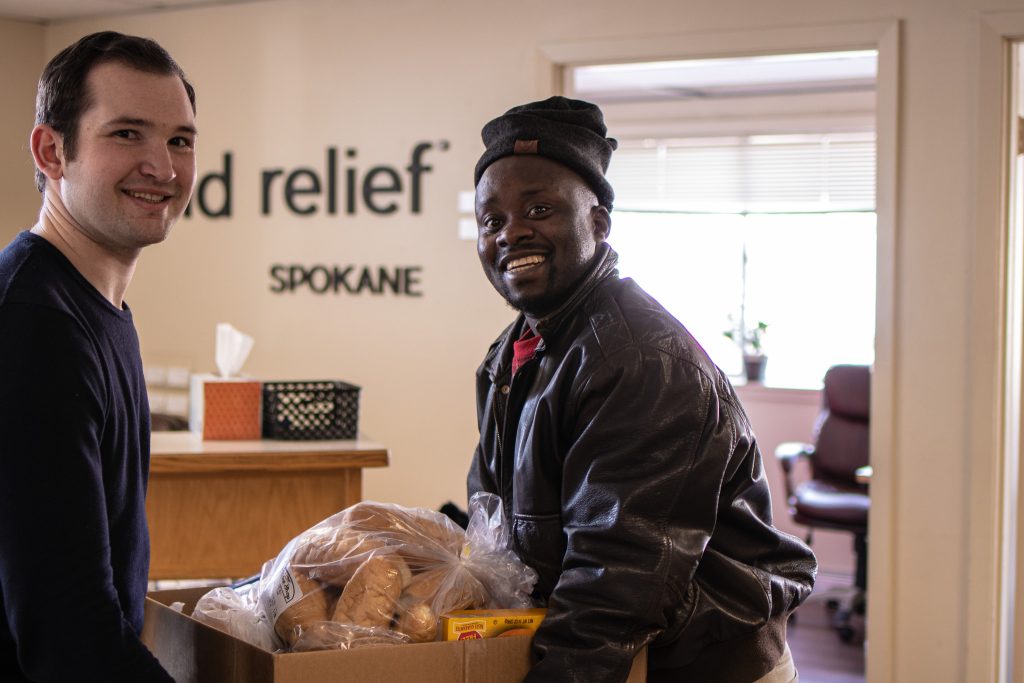
“Above all, love each other deeply, because love covers over a multitude of sins. Offer hospitality to one another without grumbling.”
I Peter 4:8-9
The word hospitality comes from the root “ghosti,” meaning stranger, host or guest, and there’s a reciprocity inherit in its meaning. Both the host and the guest have something to offer.
To show hospitality means to slow down and take time to see someone, to listen to them, to share of yourself, to recognize the image of God in your neighbor.
In the book of Genesis, Abraham and Sara are a literal example of this. They showed hospitality to 3 strangers by the oaks of Mamre. In biblical times, in the absence of a formal hospitality industry, people had a social obligation to welcome strangers, and a stranger was transformed from a potential threat to an ally through the offer of welcome, food, rest and time.
COMPASSION
I am beginning to think you cannot have compassion without cost. One of the things I desire most in the world is comfort. I am an extreme introvert, so my idea of an ideal afternoon would be a swim in the river and time in the hammock, alone with a stack of books and a delicious treat. An escape. Not bad or inappropriate on occasion but possibly deadly in excess.
When I interviewed a friend about her global rescue work, she talked about moving into pain and suffering because she knew she would find Jesus there. He was sure to be present in the suffering.
Compassion means “to suffer with.” To choose comfort – the absence of suffering – as the goal, the norm, is incompatible with compassion. We cannot close our eyes to the suffering of our neighbors and be compassionate.
Compassion is part of what makes us human.
“Unless there is peace and joy and freedom for you, there can be no real peace or joy or freedom for me.”
Frederick Buechner
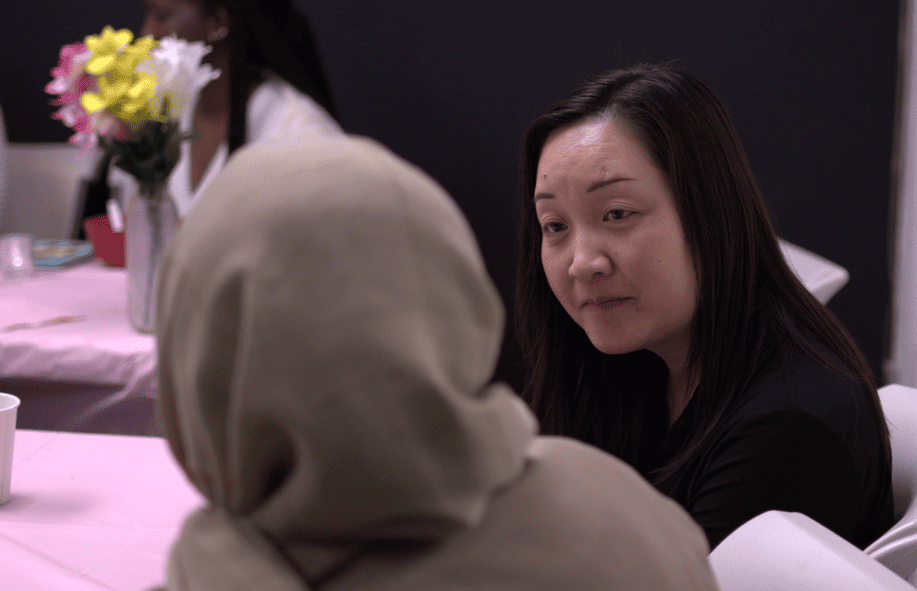
STRANGER
Foreigner. Alien. Other.
We’re all familiar with the important and much-needed use of the word – “stranger danger.” Outside the context of teaching children to be alert and cautious, however, the negative connotations of the word “stranger” can do damage.
In Maslow’s hierarchy of needs, love and belonging come right after basic physical needs and safety. Everyone needs to belong.
“Otherness” is a relatively new word used to describe the sense of being an outsider, of not belonging. Stranger implies “other,” different from me.
“Otherness defines people based on how they differ from the group we see as us. This can be enriching if we see differences as complementary and a path to communication and learning. However, historically, it has been the starting point for systemic hierarchization, armed conflict, the oppression of social, religious, racial, sexual, gender and minorities. When we refer to someone as “the other” and not “one of us,” we establish a social, relational, psychological, and emotional distance that justifies crossing boundaries that would not be permitted within our group.” – Institute for the Future of Education
As Christians, we see the starting point for all of humanity is the fact that we are created in the image of God. We all belong to the human group, and therefore, we are more alike than we are different.
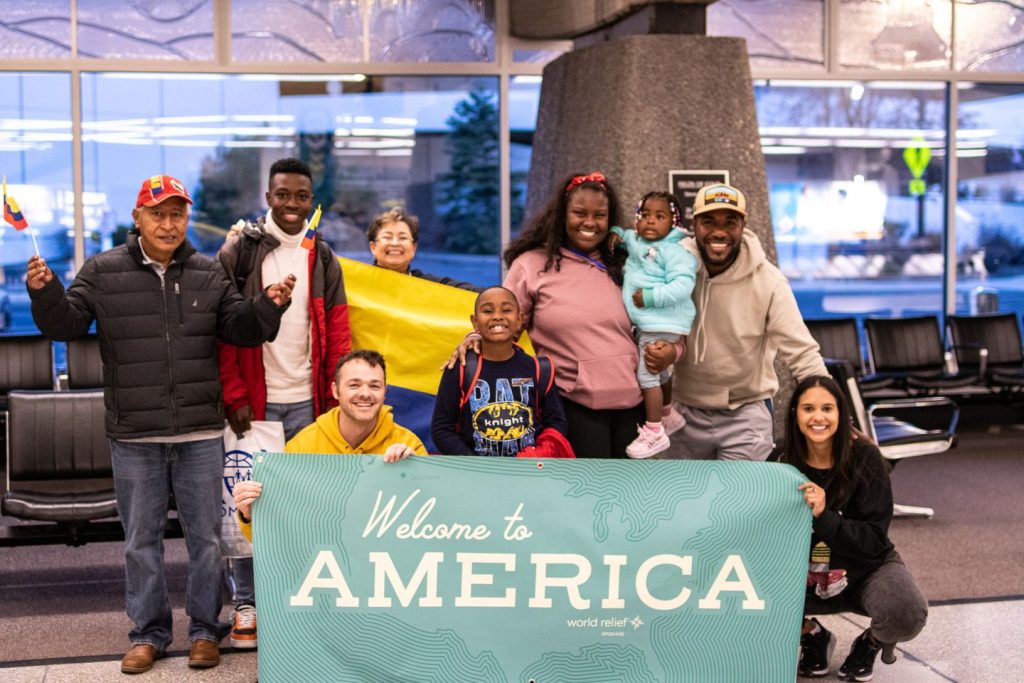
“The foreigner residing among you must be treated as your native-born. Love them as yourself, for you were foreigners in Egypt. I am the Lord your God.
”Leviticus 19:34
WELCOME
It’s the word on our doormats. Passive. If you come to my door, I will smile and say hello. I will not open the door with a weapon, ready to fight. I will hear what you have to say, and I may even invite you inside.
What I’ve learned at World Relief is that welcome is not passive. Welcome requires action. We may tend to think that we are being welcoming if we are not actively antagonistic, if we do not express xenophobic or racist tendencies. To a person who is brand new to this country, however, the sins of omission are as devastating as the sins of commission.
New arrivals need someone to reach out actively – greet them at the airport, bring a meal to their house, teach them how to use the bus, practice English with them.
Passive welcome isn’t really welcome at all.
Here are some ideas on how to be a part of actively welcoming:
- Invite a neighbor to tea. Keep tea, dried fruit and nuts on hand. Be ready to invite a new neighbor to tea at a moment’s notice.
- Listen to understand. Be curious about other cultures. Ask non-threatening questions. Take time.
- Become a conversation partner or friendship companion.
- Go to the airport to welcome a new arrival.
- Prepare a meal for a newly arrived family.
- Provide hygiene items or cleaning supplies for families making a new home.
- More info here: volunteer, donate, give
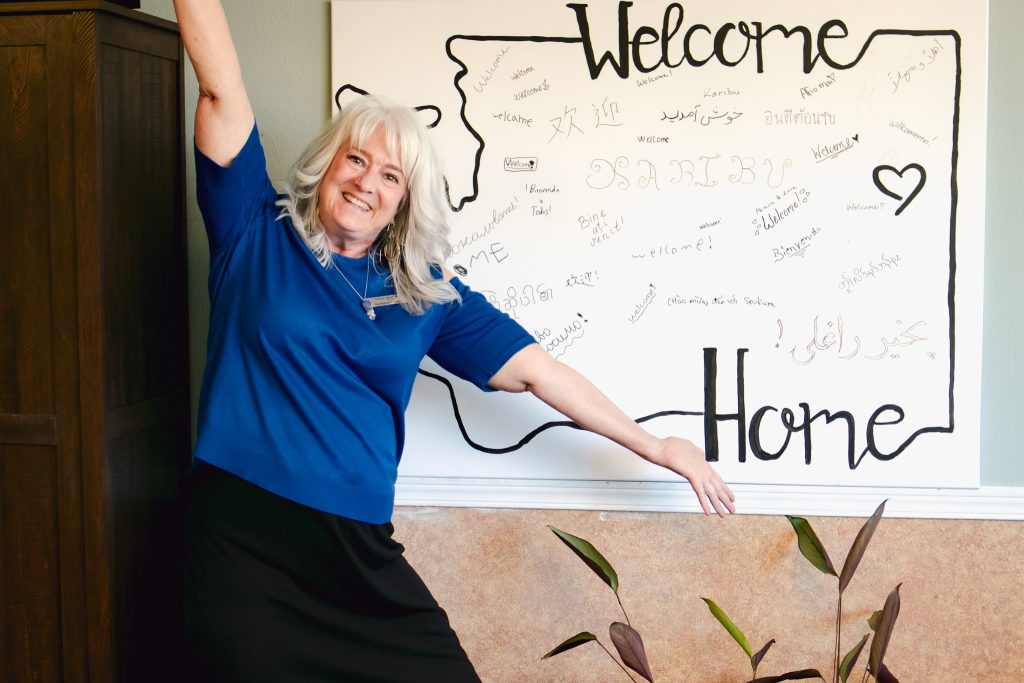
Barbara Comito is the Development Director at World Relief Spokane. In addition to leading a team of creative professionals, she is married to a chef, has four children and three grandchildren, loves to garden, write and read/watch British mysteries.
